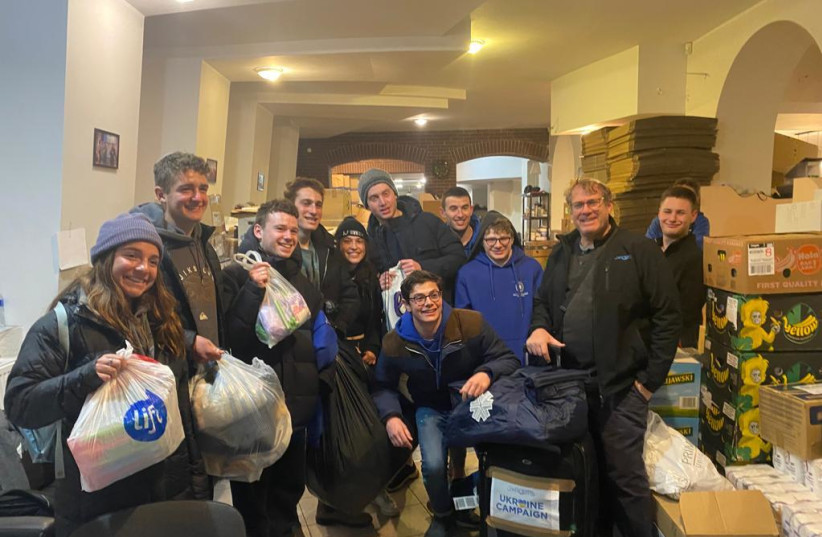The Krakow branch of the Child Survivors of the Holocaust organization meets on the last Saturday of every month at JCC Krakow on the ground floor in the room on the right. These elderly Jews, all in their 80s, are Polish Holocaust survivors who remained in Poland after the war. They are my friends, as well as JCC members, and I always try to attend the monthly meetings and spend time catching up with them and listening to their stories.
Last month, they met at their regular time, but in the room on the left. Their usual space has been repurposed as a free store for supplies for Ukrainian refugees, almost all women and children who have escaped to Krakow. Over 600 Ukrainians a day come in and take medicine, food, clothing, toiletries, sanitary items and toys – whatever they need.
One Holocaust survivor, Anna, who had been in the Warsaw ghetto as a young girl, slowly stood up during the meeting and asked to speak. She looked over at the women and children across the way and said that they, as child survivors of a genocide, must do all they can to help children who are fleeing another one. “That was once us,” she said. She suggested they donate their yearly dues to our JCC to help Ukraine and she asked for a vote. Every hand went up and they voted unanimously to give their money to support the refugees.
Krakow is 50 km. from Auschwitz – an hour’s drive by car or half a day on a bicycle, something we do once a year on Ride for the Living, the annual commemorative event we created to remember the Holocaust and celebrate Krakow’s reborn Jewish community. JCC Krakow, opened in 2008 by the Prince of Wales, was created to care for Holocaust survivors and to rebuild Jewish life in our city, which often means welcoming young Poles who have just discovered that they are Jewish.
When Russia attacked Ukraine on February 24, we made a decision to fully focus our institution on helping all Ukrainians, without differentiating between Jew and non-Jew. We hung a big banner over our entrance saying welcome in Ukrainian and set about turning ourselves into a full service humanitarian organization.

Over the last two months, we have doubled in size, hiring 25 new full time staff, including 18 Ukrainian refugees, and are running on our own and with partners 16 separate programs to help Ukrainians. Besides the 600 refugees a day who come in to take supplies, we are housing and feeding over 400 a day in hotels, providing psychological and legal services, job training and language classes, and have set up a day care and safe space for mothers.
We help coordinate and fund a full service hub for Ukrainians where over 20,000 people have been helped so far, and are working with a local Evangelical Christian organization to send truckloads of supplies into Ukraine and have brought out thousands of people. We are training Polish psychologists to deal with trauma and are working with the Polish scouts at the train station to provide food and shelter. Mindful of the particular needs of particularly vulnerable communities, we have programs to provide for LGBTQ+ Ukrainians and Ukrainian Roma. And much more.
This year, we are on track to spend more than five times our annual budget on Ukraine. Well over 1,000 Ukrainians a day are being served by our institution, the overwhelming majority of whom are not Jewish. We have directly helped over 70,000 Ukrainian refugees.
Jews have lived as a minority in this part of the world for a thousand years. Many of those were good years, some not so good, and six of them from 1939-1945 were worse than any in our history. World Jewry’s perspective on Ukraine and Poland is often defined by those six years, times in which Jews were murdered just for being Jews and too many stood silently by.
80 years ago that silence enabled Auschwitz and the decimation of our Jewish community.
Today, eighty years later, the Jewish community next to Auschwitz, having learned the danger of silence, raises its voice in solidarity and in protest, and throws open its arms to strangers.
The writer is chief executive officer of JCC Krakow.
